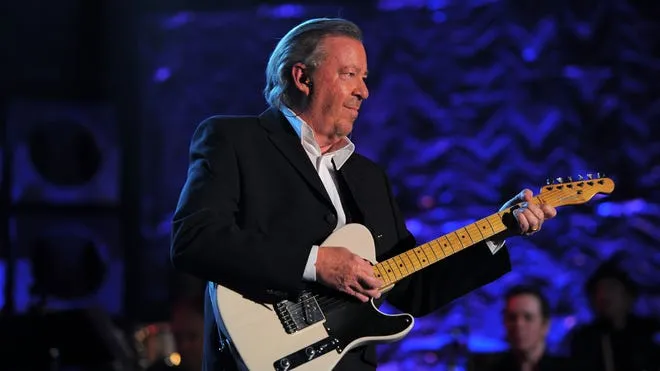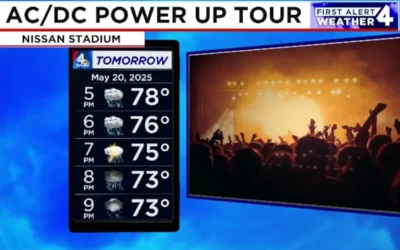The Problem with Concert Ticket Prices
In a world where music is a universal language, attending a concert has become more than just a leisure activity—it’s a cultural phenomenon. However, for many fans, securing a ticket to their favorite artist’s show has turned into a maddening experience filled with frustration and financial pitfalls. The rise of automated bots and ticket scalpers has led to exorbitant prices that often leave loyal fans in the dust. This article delves into the intricacies of the concert ticket industry, examining how scalping and automation have altered the landscape of live music events and what can be done to restore balance to this once-accessible arena.
The Rise of Automation and Scalping
Over the last decade, the ticketing landscape has drastically transformed due to the introduction of sophisticated web scraping bots. These bots systematically scour ticketing platforms like Ticketmaster, securing vast quantities of tickets in mere seconds, making it nearly impossible for fans to compete. As a result, these tickets are frequently resold at marked-up prices through secondary marketplaces—often at inflation rates that can reach or exceed 300% of the original price.
Concerts now often see a limited number of tickets available at face value, with many fans forced to turn to secondary markets where prices soar due to high demand. Events that sell out within minutes can leave countless fans desperately searching for affordable tickets, an all-too-common experience that has led to a significant backlash against ticketing platforms and scalpers alike.
Understanding Ticket Prices
The economics of concert ticket pricing can be baffling for average consumers. Factors influencing ticket prices include venue size, artist popularity, and the costs involved in putting on a concert, from production to marketing. However, despite these legitimate factors, scalping and bot purchasing have introduced an artificial inflation to ticket prices that further alienates the average consumer.
Today, the average ticket price for popular concerts has surged, with many shows easily reaching into the hundreds, if not thousands, of dollars for a single entry. This reality presents an uncomfortable question: have we reached the tipping point where attending live music is no longer an affordable pastime for the average fan?
The Financial Dynamics: Who Profits?
This soaring price tag provides a glimpse into the financial dynamics of ticketing. While some industry players argue that higher prices reflect artist and promoter profits, the reality often tells a different story. When a ticket is purchased at a high price from a scalper, the initial artist does not receive any benefit; instead, the profits line the pockets of scalpers and secondary market sites.
Ticketmaster has implemented varying anti-scalping measures in the form of ticket limits and verified fan programs in hopes of combating these practices. However, fans still find themselves battling against determined scalpers who find loopholes within these protective measures. Some researchers argue that these measures are only scratching the surface, suggesting a need for more robust regulations intended to create a fair playing field for fans and artists alike.
Fan Experiences and Reactions
Despite the frustrations and increasing prices, one fact remains undeniable—fans love attending concerts. A recent survey indicated 40% of respondents would pay extra for a ticket just to see their idol live. This draws a question: are fans complicit in the inflation of prices, or are they simply resigned to the unfairness of the current system?
The allure of live music often outweighs the inflated price tags. From the pulsating excitement in the crowd to the rare experience of shared energy with fellow fans, attendees frequently justify paying exorbitant amounts for the unique experience of a concert. In a sense, this dynamic creates a loop where ticket prices keep climbing as long as fans are willing to pay up.
Looking Toward Solutions
While the fight against bots and scalpers continues, industry stakeholders have started exploring multiple avenues for solutions. Legislation like the BOTS Act aims to penalize the use of automated bots in purchasing tickets. However, as enforcement remains complex, effective change requires a collaborative effort between lawmakers, ticketing agencies, artists, and fans.
One promising avenue is the move toward direct-to-consumer sales models, where artists sell tickets directly from their websites, eliminating intermediaries and scalpers altogether. Increased transparency within the ticketing process is essential to anchoring trust among consumers that they will receive fair prices without the fear of inflation due to manipulation.
The Future of Concert Ticketing
As we look toward the future of the concert ticketing industry, several potential shifts hint at a more equitable environment for fans. Enhanced technology solutions like blockchain are emerging as possible methods for ensuring transparency and fairness in ticket resales, allowing for more regulated processes that make it harder for scalpers to profit at the expense of fans.
Moreover, social media platforms could serve as tools for verifying fans and distributing tickets, thereby reducing the likelihood of scalpers entering the equation. Additionally, loyalty programs that reward genuine fans with early access or discounted prices may also foster an environment that challenges scalpers’ power in the scene.
Conclusion
The dual fight against bots and scalpers reflects a microcosm of the challenges consumers face in various industries. While the concert ticketing market evolves, it remains crucial for stakeholders to keep fans at the forefront of their decision-making. Addressing these issues is not merely about curbing unsavory practices; it’s about restoring the experience of live music as one that is accessible, inclusive, and fair to everyone.
As the curtain rises on this new era of concert ticketing, the collective resilience of music fans, regulatory frameworks, and continued advocacy for ethical practices may indeed shape a brighter future in which the love for live music can thrive free from the clawing fingers of scalpers and bots.







